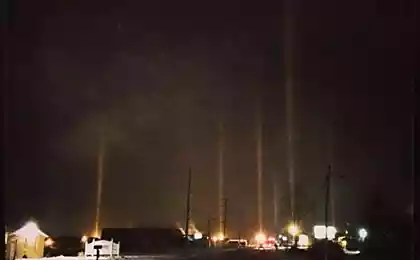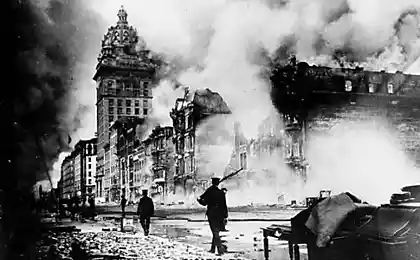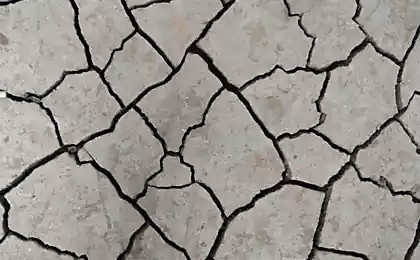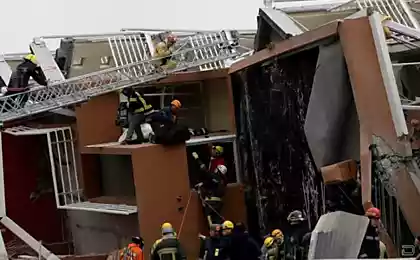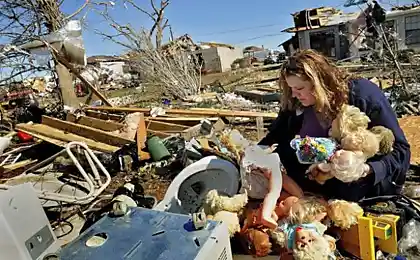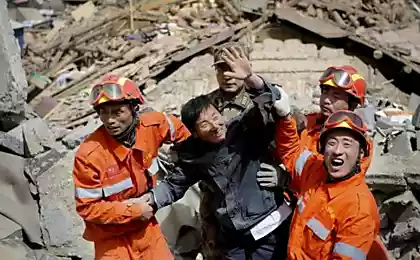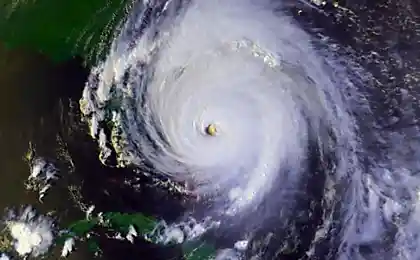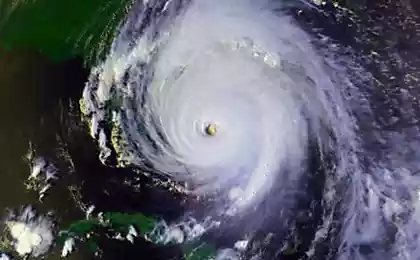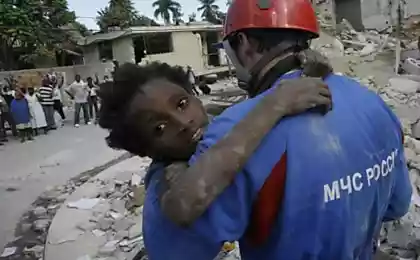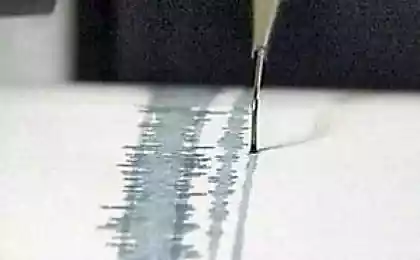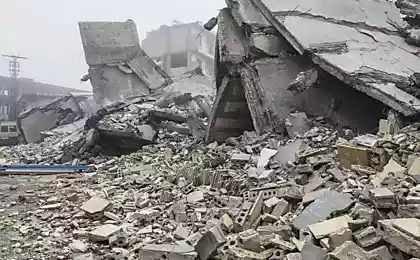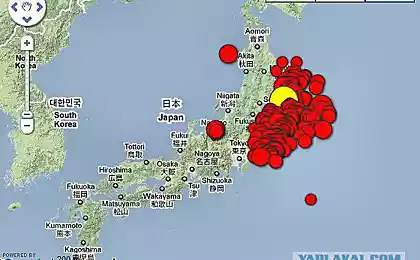227
Rescuer taught what to do during earthquakes, floods and other disasters
It is no secret that the climate on the planet is changing. And natural disastersThe number of people who have recently become more frequent around the world confirms this. The main problem is that people are not ready for them. Today's edition. "Site" How to behave when a storm warning is issued. And we will tell you what to do during earthquakes, floods and other disasters.
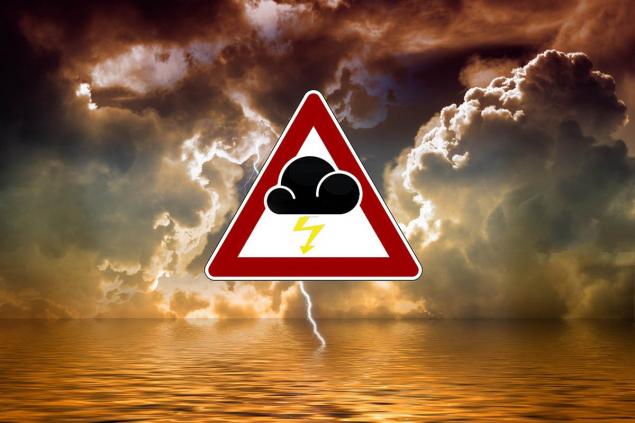
So, if a storm warning is announced on TV or radio, do not panic. The weather has been very changeable lately. So the first thing you need to do is check the prognosis regularly and monitor her condition. It is possible that the shower with a flurry will simply not. If things get worse, follow the news. The media primarily reported the evacuation of the population.
Make sure that there are no unnecessary things on the balcony and in the yard. Find the safest place in the house where you can hide. Perfect room without windows, located not under the roof. Your arsenal should be First aid kit, water and non-perishable food.
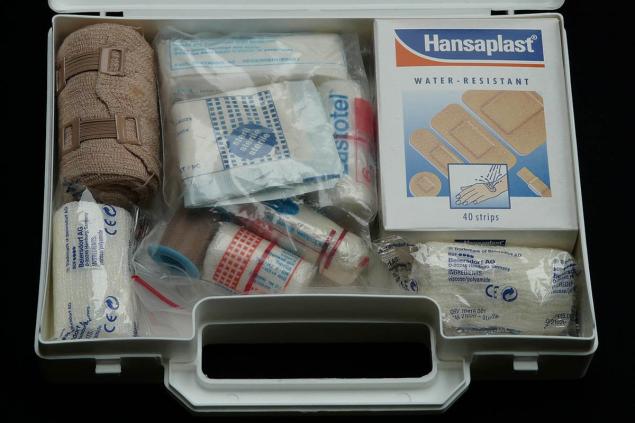
In addition, it is important to prepare a backpack with the necessary things in case of emergency evacuation. Put in it water, first aid kit, documents, dry rations, charger, knife and flashlight. Don't forget about sterile protective masks and antiseptics: COVID-19 hasn't gone anywhere. You can have some memorabilia, but don't take any extra.
If you have children, get them involved in the process. They will be less afraid and less stressed. Take care of your pets as well. They feel like no one is approaching a cataclysm.

Do not try to evacuate yourself if the situation on the street is critical. It is better to wait out the bad weather at home than risk your life. And perhaps most importantly, stay calm. When people panic, they are not aware of their actions. This can lead to dire consequences.
When visiting a region where earthquakes sometimes occur, be prepared in advance. Stay in the building and take cover. Stand near an inner wall that won’t collapse. Separate yourself from heavy furniture or machinery, glass things. Do not use the elevator, if possible, cut off the gas in the apartment.
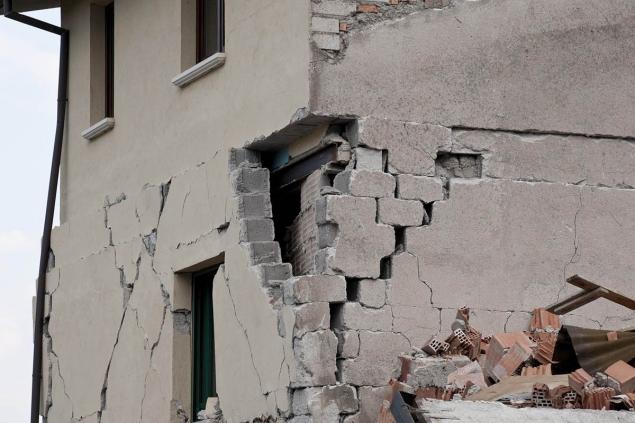
If you are on the street, it is best to be in the most open space. This is necessary so that you do not fall on anything from buildings, power lines and other objects. Once in the car during an earthquake, park it in a safe place where nothing on the car can fall. It is best to stay inside the cabin until the disaster is over. Turn on the radio to stay in touch with the outside world.
In mountainous areas, landslides are possible, and near water bodies – tsunamis. In such a situation, it is best to climb to a height of at least 30 m or rather get away from the water for at least 3 km. If an earthquake hits you in a public place, don’t panic. There is nothing worse than a human crush in which people do not notice each other.
This year, Crimea and many cities in Ukraine (where this is not typical) were affected by floods. It is impossible to prepare for this in advance, because bad weather can take you by surprise. But if you find yourself in this situation, it is important to follow some rules.
First, wherever you are, make sure there is no communication around you. For example, broken power lines. Second, you need to get to a safe place with water, food and a toilet as soon as possible. No one knows how long the flood will last.

If you find yourself at home during a flood, turn off the gas, water and electricity first. If you have an attic, move all valuables there. Windows and doors are best barricaded. It is also necessary to prepare a backpack with things in case of evacuation. And, of course, be alert and follow the news.
If you go to a country where typhoons, hurricanes or even volcanic eruptions are possible, you need to be prepared for this. Learn in advance the features of the area, weather forecast, and constantly monitor the situation. For example, there are online monitoring of hurricanes and maps of their movements.

Volcanic eruptions, like hurricanes, can be predicted. So the media will inform in advance that a natural disaster is coming. Local authorities determine whether the population needs evacuation. You just have to follow all the instructions.
Not so long ago, the main YouTube traveler Anton Ptushkin showed subscribers his trip to Hawaii. It was there that the blogger managed to see a live eruption of the volcano and learn from local residents how they cope with the cataclysm. We recommend watching this interesting video!
about:blank
Have you ever been in the midst of a natural disaster? What were your actions? Be sure to share your experience in the comments!

So, if a storm warning is announced on TV or radio, do not panic. The weather has been very changeable lately. So the first thing you need to do is check the prognosis regularly and monitor her condition. It is possible that the shower with a flurry will simply not. If things get worse, follow the news. The media primarily reported the evacuation of the population.
Make sure that there are no unnecessary things on the balcony and in the yard. Find the safest place in the house where you can hide. Perfect room without windows, located not under the roof. Your arsenal should be First aid kit, water and non-perishable food.

In addition, it is important to prepare a backpack with the necessary things in case of emergency evacuation. Put in it water, first aid kit, documents, dry rations, charger, knife and flashlight. Don't forget about sterile protective masks and antiseptics: COVID-19 hasn't gone anywhere. You can have some memorabilia, but don't take any extra.
If you have children, get them involved in the process. They will be less afraid and less stressed. Take care of your pets as well. They feel like no one is approaching a cataclysm.

Do not try to evacuate yourself if the situation on the street is critical. It is better to wait out the bad weather at home than risk your life. And perhaps most importantly, stay calm. When people panic, they are not aware of their actions. This can lead to dire consequences.
When visiting a region where earthquakes sometimes occur, be prepared in advance. Stay in the building and take cover. Stand near an inner wall that won’t collapse. Separate yourself from heavy furniture or machinery, glass things. Do not use the elevator, if possible, cut off the gas in the apartment.

If you are on the street, it is best to be in the most open space. This is necessary so that you do not fall on anything from buildings, power lines and other objects. Once in the car during an earthquake, park it in a safe place where nothing on the car can fall. It is best to stay inside the cabin until the disaster is over. Turn on the radio to stay in touch with the outside world.
In mountainous areas, landslides are possible, and near water bodies – tsunamis. In such a situation, it is best to climb to a height of at least 30 m or rather get away from the water for at least 3 km. If an earthquake hits you in a public place, don’t panic. There is nothing worse than a human crush in which people do not notice each other.
This year, Crimea and many cities in Ukraine (where this is not typical) were affected by floods. It is impossible to prepare for this in advance, because bad weather can take you by surprise. But if you find yourself in this situation, it is important to follow some rules.
First, wherever you are, make sure there is no communication around you. For example, broken power lines. Second, you need to get to a safe place with water, food and a toilet as soon as possible. No one knows how long the flood will last.

If you find yourself at home during a flood, turn off the gas, water and electricity first. If you have an attic, move all valuables there. Windows and doors are best barricaded. It is also necessary to prepare a backpack with things in case of evacuation. And, of course, be alert and follow the news.
If you go to a country where typhoons, hurricanes or even volcanic eruptions are possible, you need to be prepared for this. Learn in advance the features of the area, weather forecast, and constantly monitor the situation. For example, there are online monitoring of hurricanes and maps of their movements.

Volcanic eruptions, like hurricanes, can be predicted. So the media will inform in advance that a natural disaster is coming. Local authorities determine whether the population needs evacuation. You just have to follow all the instructions.
Not so long ago, the main YouTube traveler Anton Ptushkin showed subscribers his trip to Hawaii. It was there that the blogger managed to see a live eruption of the volcano and learn from local residents how they cope with the cataclysm. We recommend watching this interesting video!
about:blank
Have you ever been in the midst of a natural disaster? What were your actions? Be sure to share your experience in the comments!
She ran the house with her mother-in-law and threw away a mountain of junk, showing
What do summer residents spend money on, and then cry bitterly
